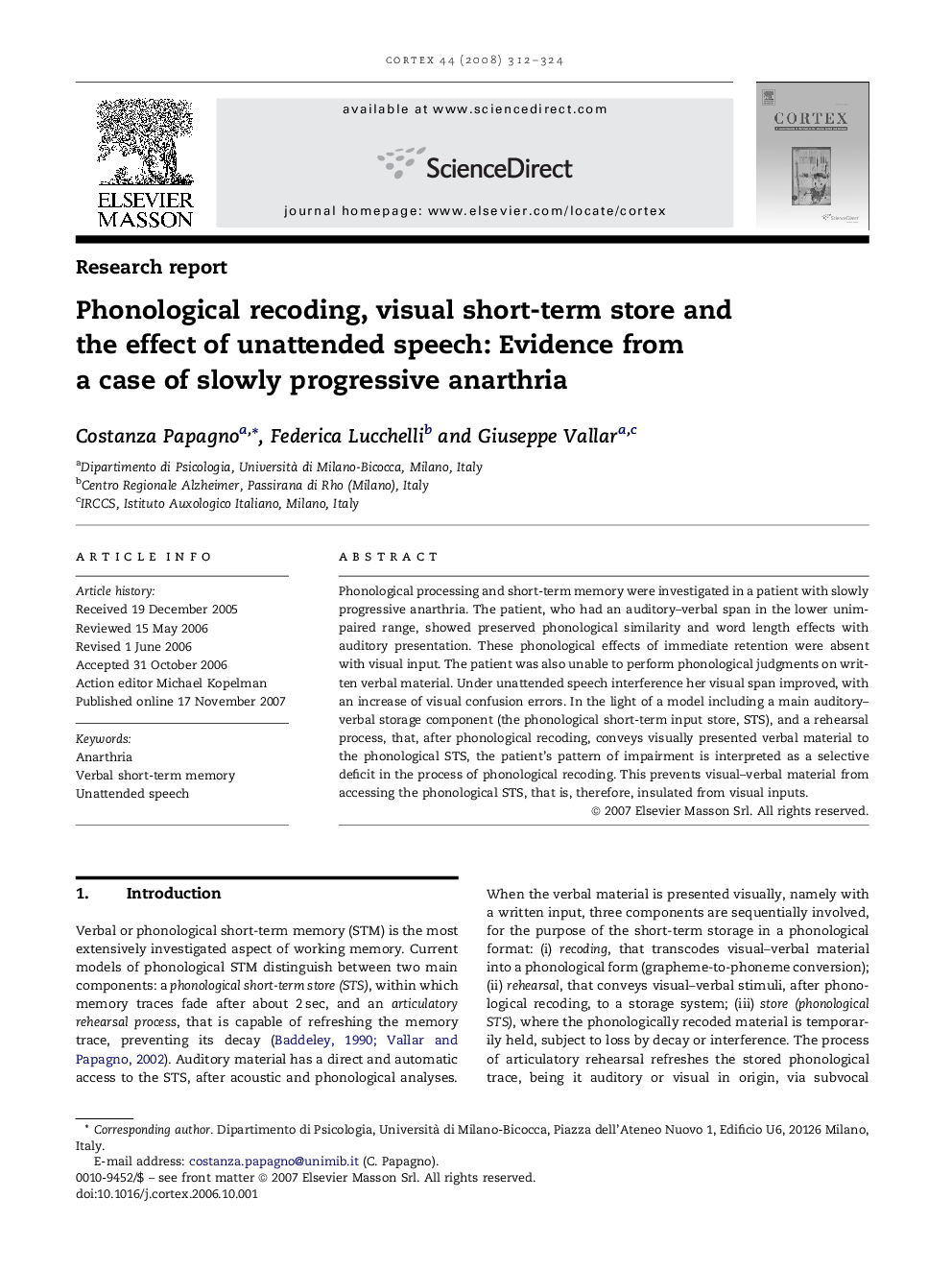| Article ID | Journal | Published Year | Pages | File Type |
|---|---|---|---|---|
| 942873 | Cortex | 2008 | 13 Pages |
Phonological processing and short-term memory were investigated in a patient with slowly progressive anarthria. The patient, who had an auditory–verbal span in the lower unimpaired range, showed preserved phonological similarity and word length effects with auditory presentation. These phonological effects of immediate retention were absent with visual input. The patient was also unable to perform phonological judgments on written verbal material. Under unattended speech interference her visual span improved, with an increase of visual confusion errors. In the light of a model including a main auditory–verbal storage component (the phonological short-term input store, STS), and a rehearsal process, that, after phonological recoding, conveys visually presented verbal material to the phonological STS, the patient's pattern of impairment is interpreted as a selective deficit in the process of phonological recoding. This prevents visual–verbal material from accessing the phonological STS, that is, therefore, insulated from visual inputs.
